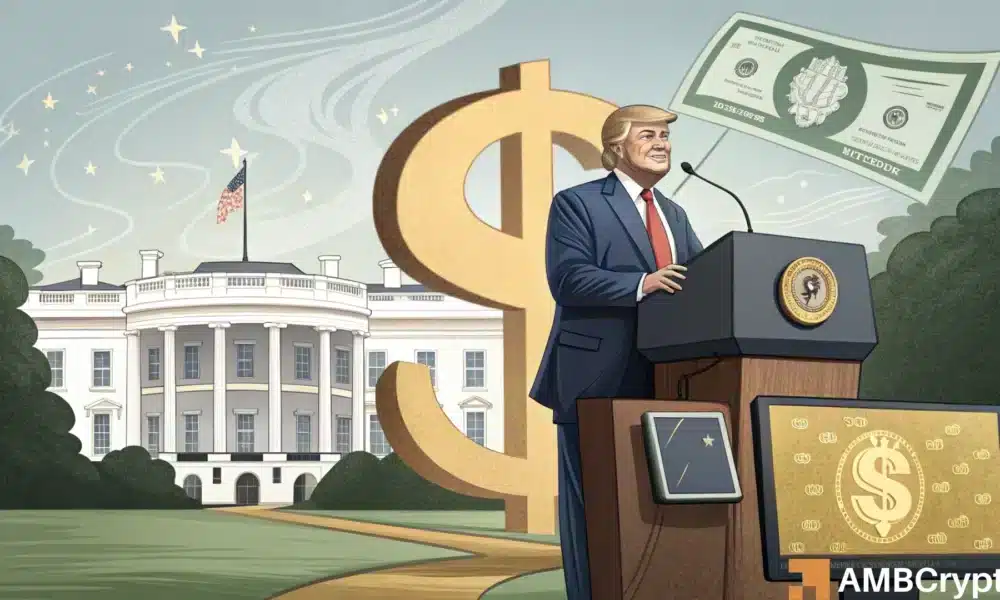USD1 and the dollar dominance agenda
WLFI’s USD1 stablecoin aims to reinforce dollar dominance in digital finance. However, the centralized control WLFI holds over USD1 raises concerns about transparency and governance.
WLFI’s ability to freeze accounts and blacklist transactions sets it apart from decentralized cryptocurrencies, raising concerns about financial autonomy.
The firm’s sustainability is under scrutiny due to recent financial setbacks. Its crypto portfolio has suffered significant losses, including a $51 million decline as of February 2025. This instability casts doubt on USD1’s backing and WLFI’s long-term viability.
For retail investors, these issues are alarming. USD1’s centralized nature limits decision-making influence and complicates liquidating holdings during market downturns. This lack of transparency risks eroding trust and deterring investment.
Evaluating oversight in the wake of presidential influence
The Trump family’s involvement in WLFI and USD1 has raised concerns about the impartiality of financial regulators. With Trump exerting significant influence over agencies overseeing the crypto sector, doubts have emerged about the strength of current oversight mechanisms.
In February 2025, President Trump issued an executive order increasing presidential control over independent regulatory agencies, including financial watchdogs.
This move has sparked fears of potential conflicts of interest, particularly regarding WLFI’s plans for USD1. Critics warn that consolidating power could weaken agencies tasked with ensuring financial stability and protecting consumers.
Democratic lawmakers, led by Senator Elizabeth Warren, have urged financial regulators to detail their strategies for monitoring WLFI and addressing associated risks.
The proposed GENIUS Act seeks to establish a comprehensive regulatory framework for stablecoins, granting oversight to the Federal Reserve and the Office of the Comptroller of the Currency. However, its effectiveness remains uncertain given the current political climate.
Adding to the complexity, Paul Atkins, a pro-cryptocurrency advocate, has been appointed as Chair of the SEC. Known for his support of digital assets, Atkins may push for more lenient oversight, raising concerns about balancing innovation with market integrity.
Where should regulators draw the line?
The intersection of politics and finance presents significant challenges for regulators. Balancing innovation with accountability becomes increasingly difficult when political figures hold substantial financial stakes in emerging crypto projects.
As President Trump advances the dollar dominance agenda through USD1, financial watchdogs face the delicate task of safeguarding market integrity without hindering innovation.
Proposals like the GENIUS Act emphasize the need for clear regulations to prevent conflicts of interest while encouraging growth.
However, as political influence permeates regulatory frameworks, maintaining impartiality becomes critical. Striking the right balance will determine whether the U.S. financial system remains resilient or succumbs to political and economic entanglements.







